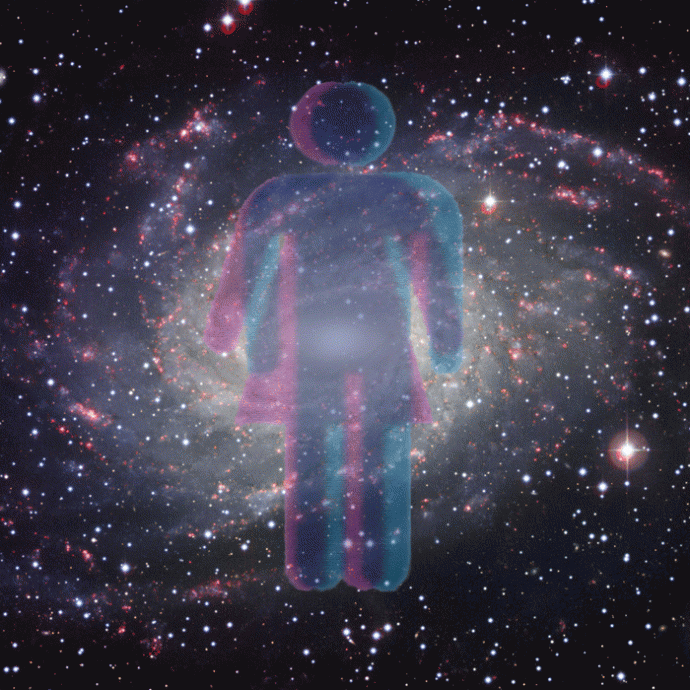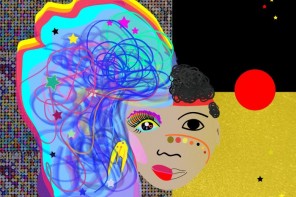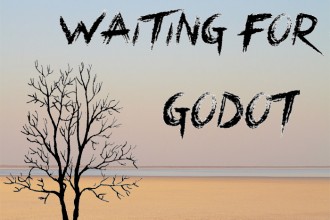Despite our generation’s increasing willingness to understand sexuality as fluid and non-linear, recent political and social advances for sexual minorities are serving to categorize and stabilize definitions of human desire. If we were ‘born this way’, the argument goes, we should be afforded the same rights. But if we weren’t, why shouldn’t the same be true?
A small piece of paper tucked away in a fire-safe box on a dusty shelf of my closet betrays what day, month, and year I came out of my mother’s nether regions. It further reminds me that I came out of them in a particular city, in a particular country and with particular identifiable characteristics. Perhaps to the chagrin of many gay rights activists however, it does not reference my coming out in any way other than the physical exiting of a vagina – that coming out was about 17 years later.
I mention this curiously small proof of my existence because it seems only logical that if I were born a certain way, it would be accounted for in one of the paper’s many modestly embellished fill-in-the-blanks. Alas, Lady Gaga, it seems there was little evidence of my future sexual proclivities at the time of my birth.
But why should there be? In how many ways can one be born? And why should any of them have to do with my preferences for particular bodily organs? As far as I remember (which isn’t that far), the only sexual organ I was interested in then was my mother’s breast. I know I was born with blue eyes, but is their tendency to follow men’s asses rather than women’s a product of a simultaneous biological process? Though I was born with a full head of blonde hair, is it safe to say that my attraction to a full chest of brown hair was similarly determined?
The absurdity of these associations highlight the absurdity of conflating a process as socially complex as sexuality to a process as natural as birth. And while easy to mock, this unfounded fusion of coming out of a vagina with coming out of the closet poses very real dangers to anyone who has grappled with sexual identity, namely, the planet’s entire population.
But surely, I hear your favorite aunt protest, no one would choose to be ‘gay’. Why would someone opt for a life of marginalization at best, and risk death at worst? Before answering such a question, a definition of this purportedly inborn yet potentially life-threatening characteristic is in order. Luckily, if sexuality is determined at birth, it should be easy to identify. We might start by stating the obvious: men who have sex with men are ‘gay’, and men who have sex with women are ‘straight’. But wait, I’m sure I’ve slept with a guy who’d lost his virginity to a woman. It must be that men who only have sex with men are ‘gay’. Although I remember an ‘exclusive’ top I met on holiday telling me he was saving himself for marriage – to a woman. Perhaps one must be exclusively penetrated and only ever by men to be ‘gay’, though that seems a little unfair to my friends who seem to genuinely prefer doing the penetrating.
Even the most cursory attempt at a definition proves difficult despite the (un)ease by which I so often identify as ‘gay’. But perhaps the attempt itself begs the question. A definition assumes a meaning which corresponds to reality – if I were to walk out into the street right now, how could I find myself a ‘gay’? Do they look the same? Do they act the same? Do they all define their sexuality in the same way? I sincerely hope not.
At the risk of sounding like an undergrad, we might look to Saint Foucault for some direction. Same-sex contact, behaviours and their practitioners are well attested to in written, visual, and even oral histories, for as long as they have been recorded. However, the association of these interactions with identity has a distinct and traceable history. Citing the normalising practices of eighteenth century medical and legal discourse in the West, Foucault argues not only for the modern advent of the category ‘homosexual’, but its inextricable link to identity.[1] In this way, not only have sexuality and desire become constituent components of contemporary self-understanding, but ignorance of a definable sexuality has come to mean an ignorance of identity. This may help explain the compulsion to not only define ‘gay’ but insist on its link to our birthdays – if I can’t tell you who I want to fuck and why, then I don’t know who I am. It’s enough to make my heads spin.
Certainly this Queer Theory 101 crumbles under the scrutiny of hard science. Well, maybe someday, but as of yet, not a single study has proven a direct link between sexual orientation and biology. Of the many failed attempts is the now infamous ‘How long is your ring finger?’ survey, which I can only assume was authored by the same scientists who discovered that you will get cancer if your hand is larger than your face. Simon LeVay, the most sexual of all the neuroscientists, did find that the third Interstitial Nucleus of the Anterior Hypothalamus (INAH3) was more than twice the size in self-identified ‘heterosexual’ men than in similarly identified ‘homosexual’ men. Even he admitted though, that exceptions in the sample suggested that while sexual orientation may be an significant variable, it is not the sole determinant of INAH3 size.[2]
Even if we were to find a trait that was expressed uniquely in ‘homosexuals’, how could it be linked to so unstable (and recent) a term? Any study which endeavors to uncover the genetic or biological basis of ‘homosexuality’ presumes its universally applicable definition. Similar presumptions were made in witch hunts, attempts to cure female hysteria and eugenics, to name a few. Also common to the objects of study in these undertakings, each blessed by the scientific communities of their time, was their deviation from contemporary social norms. This explains the lack of scientific exploration into the phenomena of ‘heterosexuality’ and ‘monogamy’, and the conspicuous absence of the ‘straight gene’ – there is no need to pathologize the norm. As the Council for Responsible Genetics concludes, ‘We are sexual beings, yet this does not mean that we are born homosexual, bisexual, or heterosexual’.
But these disconcerting attempts to locate the ‘gay’, at least as conceived by her ladyship, overshadow a simpler question: why shouldn’t I be able to choose to identify as ‘gay’ or sexually nonconforming? Without giving voice to any asinine slippery slope arguments, it is enough to note that sexual consent is based on choice. Surely we limit the radical potential of queer relationships when we throw our hands up and confess we didn’t choose this horrible life for ourselves – it’s not our fault we enjoy sex for reasons other than procreation because ‘We were born this way!’. This position surrenders the liberating possibilities of sexual heresy once proudly claimed by our community – a pride which now more often takes the form of married couples on AIDS awareness floats who would have no doubt married members of the opposite sex and lived otherwise ‘normal’ lives if not for that pesky gay gene.
Recent retorts to this question have claimed that it relies on a notion of choice which conflates choosing a ‘gay identity’ with our innate ‘orientation’. That is, while we may choose to link our sexual desires to a stereotype, we remain at the mercy of their inborn, immutable character. Despite Mark Joseph Stern’s June ’13 warning at Slate that ‘any research into its biological origins is fraught with peril’, this year orientation ‘can never be altered’. Also in June of last year, Noah Michelson of the Huffington Post hoped that ‘maybe we could get to a place where…you could just be bisexual or queer or fluid’. This year, however, he is at pains to demonstrate that ‘we are innately oriented’.[3] The irony being that these mutations of opinion center around a debate about immutability.
At the heart of this perceived conflation is a severely limited notion of ‘choice’. If we could choose, these writers claim, we would know the exact date and time we made the decision. Indeed, many cite the failure of conscious efforts to reverse sexual desires as evidence of their permanence. Michelson at least permits us to ‘identify’ our own ‘gayness’. Stern, as if convincing more than just his audience, goes so far as to inform ‘gay-bashing’ Brandon Ambrosino that daring to question the fixity of his orientation is simply denial.
While I don’t believe that choice in regard to sexuality is as easy or simple as Ambrosino makes it out to be, this doesn’t automatically prove the alternative. Just because I may not be able to identify the circumstances in which I came to sexually express myself, doesn’t mean that those circumstances were predetermined. Just because the alternative to ‘coming out’ may be emotional or actual suicide for some, doesn’t make it the case for all. Surely the stigmas and societal pressures surrounding deviant desire are more to blame for this lack of choice than their purportedly inborn nature.
Ultimately, though, the more important issue is not whether or not we are born a certain way or even whether or not we can choose to change it. The real question is: why are we unable to frame the discussion in terms which are not mutually exclusive?
As Professor John Corvino of Wayne State University notes, we are not born with the ability to understand our native language, but we are unable to stop comprehending it. Although we were not endowed with the trait at birth, it is nonetheless a deeply significant aspect of ourselves. What’s more, restrictions on my ability to use English would constitute a serious breach of my ability to express myself and function in society. We are not born with a particular religious belief, but our exercise of religious freedom is constitutionally protected. Indeed, our ability to convert, i.e. choose one faith over another, lies at the very heart of this right.
Again, none of this is to say that choice in regards to sexuality is as simple as say, which lube to try next (although this can also be an elaborate decision). Reclaiming choice in our sexual lives will have enormous implications for how ‘we’ define the scope and nature of ‘LGBTI’ and ‘Queer’ communities – but that’s for another article. I do hope to point out, however, that political and social expediency should not justify a poorly conceived, weakly supported and overly simplistic view of so nuanced an experience as human sexuality. We eclipse life-altering possibilities when we surrender our desires to, dare I say, dictums of human ‘nature’. How boring a life it would be if our sexual horizons were determined before we even had the chance to mount the mast and see for ourselves.
* The use of the term ‘gay’ here is not meant to lend credence to any particular use or understanding of the term. Rather, it is a marker for my own positionality and experiences identifying through it. In this way, its use also serves as a disclaimer in that I do not write on behalf of any or all who identify with the LGBTI or Queer communities. Also, it rhymes with the hook of my title.
[1] Foucault, M., 1978. The History of Sexuality 1: The Will to Knowledge. Translated from French by Robert Hurley, 1998. London: Penguin.
[2] LeVay, S. 1991. A difference in hypothalamic structure between homosexual and heterosexual men. Science. 253, pp.1034–1037.
[3] Interesting further reading on the perils and potentialities of being ‘oriented’ might include Sara Ahmed’s Queer Phenomenology.








Pingback: Check it out | exqueeriMENTAL()